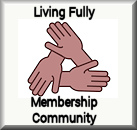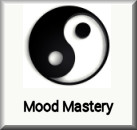The statistics for marriage longevity can erode hopefulness for happiness in marriage, especially in the hard times. I will often have a part of the couple turn and ask during a session, “Does anybody really make marriage work and are they happy?” We certainly have research from John Gottman that says, yes, and if you are fortunate, you will know those in your circle of friends that are happily married. But here is more! By using brain scan imaging, researchers at Stonybrook University showed that love really can last. in studying the brain scans, ‘there were very many clear similarities between those who were in love long term and those that had just fallen madly in love,’ Aron said. “[The brain scan showing the reward and motivation region of the brain] showed greater activation for those in the long term couple group who scored especially high on romantic love scales and on closeness scales based on questionnaires”, adds Dr. Aceredo. It needs to be noticed that the connection, attachment, sexual activity as well as romantic love were all implicated in the study. So… and they lived happily ever after is still alive and well.
Healthier Marriages Posts
Blaming and Self Responsibility in Healthy Relationships
In seeing my couple clients over the last year, I was reminded of a series of studies by David Burns. He was hoping to find, among other things, attitudes that lead to loving, rewarding relationships and those that lead to conflict and misery. What they found was that other-blame was by far the more important mind-set. This mind-set of blaming their partners (or others) for the problems in their relationship not only showed they were intensely dissatisfied with their relationship but this mind-set would accurately predict they would be more miserable and unhappy in their relationships within 3 months time. Conversely, those who were committed to making their partners happy and whose attitude showed a willingness to assume full personal responsibility for solving problems in their relationship were the most satisfied in their relationships and had an increase in their satisfaction over time.
One way that other blame shows up in therapy and gets couples into trouble is that when they blame, they call it truth telling. ‘I am only being honest” is worn as a badge to justify their assault on others or to justify their disrespect of their partner. In relationship, we need to consider the context and the other when we share what is inside of us. In the interests of being known, we can sometimes let the other in on our thoughts and feelings without sensitivity. This leads to brutality in the relationship. It is both important to know our feelings and to know how and when to express them. Blaming leads to cognitive distortions about your partner, arguing defensively, making win- lose arguments which in turn leads to endless fighting and bitterness.
The opposite challenge that some couples have is that one person totally blames himself or herself. Their thoughts are consumed with their failure and inadequacy and they often obsess on what the other has said about them. They feel paralyzed and defeated. They are flooded with cognitive distortions that make them want to give up. This often leads to depression, feeling isolated and lonely, which in turn leads to many more relationship challenges.
So what does work? I really love to see the changes with couples in my office when they understand the difference between blaming others, self blame and personal responsibility. When couples are able to have personal responsibility, they are able to look at their couple challenges in a way that they are looking for their contribution for the challenge in order to learn about themselves and how to resolve the conflict in a better way. They listen differently. They are listening for the other’s truth, the way the conflict looks to them. They stay in the conversation, being actively engaged, trying to gain a better understanding. They feel open, receptive, caring and have a greater intimacy with themselves and the other, leading to greater trust and satisfaction. This may sound a long way from where you are but when you have the skills, practice, a positive mindset and some positive goals towards this end for yourself, you will be able to accomplish a healthier relationship.
Life Changes in Couple Relationships
I have been doing some changing of my business and while I have been doing that – I have been thinking about the challenges of change. If you are like me, change is a lovely challenge. I embrace it with excitement, interest and intrigue. The difficulty for me is that my mind goes so quickly to that terrific place in my where there are so many great possibilities and ideas that I can get stalled there. Deciding on a definitive change and then following through would be more of my challenge. I usually have to make a mind map and then I have found that I really need to limit myself to 3 goals for the week in order to get out of the dreaming stage and into the doing stage.
I know from our relationship together in the counselling room that change is not at all like that for all of you. For some of you, change is threatening and something to be resisted. All kinds of fears come up. What if I can’t do what I have proposed for myself or my partner? I have tried to change before and did not follow through, disappointing myself and others. Or perhaps the comfort of your current dysfunction, painful as it is, is better then the unknown of change. Or you are stuck in not wanting to change unless your partner changes. And so the time rolls by, the suffering continues and the isolation in the relationship continues with the ideal of a healthy marriage becoming a distant dream.
If this is where you are at, I invite you to consider that change is actually for your benefit personally. Your relationship is the gift that you get to bump up against yourself and your need to change, where your interactions together surfaces some grit in your oyster. Whether your partner changes or does not, is irrelevant to our own need for change. Consider embracing the changes you are being invited to, turn that grit into a very fine pearl. As usual, go forth and be wonderful and love like you actually mean it!
Lynda Chalmers
Empty Nest Looming
It is typical for me to see at least one part of a couple (most often the woman) in counselling when the children are grown and about to leave home. If she is coming to see me, she most often feels a sense of restlessness and often the long term committed relationship has lost its element of friendship and connection. The day to day of the kids, their activities and their care has taken a toll on the relationship. There may be an affair that has been discovered. There is often a sense of not fulfilling their life purpose. If this describes you and your relationship, it is definitely time to make some changes, BEFORE the affair. If possible, go away with your partner for a weekend and have the purpose of taking stock of your coupleship. Envision a future together that focusses on life-giving goals and events. Perhaps you will decide to go somewhere and contribute to building houses for others who are less fortunate, as my friend does each year. Perhaps you will experience another country in an exchange program, perhaps going on a sabbatical from work, learning another language and culture. Take responsibility for your own malaise without blaming the relationship. Make your own changes as well as working at adding life to the relationship itself to resolve this transition of life.
Easter time
 I was reminded of the Christian religious model of extravagant love that Easter represents and realizing how short we fall of that model in many cases. Although we are connecting beings, family gatherings at Easter can be difficult for many, as families come in many shapes and sizes, and can be difficult to navigate in love. Kids are often excited and consequently sleep deprived and couples are sometimes not on the same side about relatives. Yet we keep hoping and even expecting that our time together will be different this year. In the book “The Intentional Family”, William Doherty talks about minimizing the risks of breakdowns in relationships over the holidays by planning for what people can handle ahead of time. Give people time to plan for the event. If there is someone who is emotionally disconnected at this time, invite them to the family event anyway. Let everyone know who is being invited and they will make their own choices accordingly. If there are challenges with alcohol in the family, perhaps you can have an Easter brunch. Perhaps the family will do better with an outdoor event rather then an indoor event. Perhaps a good meal in a restaurant is just about all you can handle together. Choose times that have the potential for creating a good memory together.
I was reminded of the Christian religious model of extravagant love that Easter represents and realizing how short we fall of that model in many cases. Although we are connecting beings, family gatherings at Easter can be difficult for many, as families come in many shapes and sizes, and can be difficult to navigate in love. Kids are often excited and consequently sleep deprived and couples are sometimes not on the same side about relatives. Yet we keep hoping and even expecting that our time together will be different this year. In the book “The Intentional Family”, William Doherty talks about minimizing the risks of breakdowns in relationships over the holidays by planning for what people can handle ahead of time. Give people time to plan for the event. If there is someone who is emotionally disconnected at this time, invite them to the family event anyway. Let everyone know who is being invited and they will make their own choices accordingly. If there are challenges with alcohol in the family, perhaps you can have an Easter brunch. Perhaps the family will do better with an outdoor event rather then an indoor event. Perhaps a good meal in a restaurant is just about all you can handle together. Choose times that have the potential for creating a good memory together.
Talk about the challenges in the family together as a couple in a non blaming kind of way. Family may be an enduring vulnerability in your relationship together. It is important to be gentle when talking about the failure of family members and how you might need to accommodate for family members in order to have a successful celebration together. Remember that your family is biologically attached to you and that attachment in important, even if your family members have difficulty in getting along with each other. Attacking family members in your conversations is difficult for your partner to hear even though there is some recognition of the “truth” of what you are saying. Don’t allow your family to get in the way of your team together by the way you try to resolve these holiday issues.
The Balcony People for your Partnership
 Who are the people who lift you up when you are down about your relationship and life? They are the ones who reassure you this is just a season in your relationship life. They say that others have been there and worked it through. They tell you to have patience. They notice that the other is trying. They notice that you are trying. They tell you that they have faith in your relationship. They tell you that they have faith in you and your partner to have the necessary strengths to make it all work. They remind you of the good times and help you to focus on those. They give you hope for the future. They take you out and make you smile. Cultivate these people in your life. You and your relationship need them!
Who are the people who lift you up when you are down about your relationship and life? They are the ones who reassure you this is just a season in your relationship life. They say that others have been there and worked it through. They tell you to have patience. They notice that the other is trying. They notice that you are trying. They tell you that they have faith in your relationship. They tell you that they have faith in you and your partner to have the necessary strengths to make it all work. They remind you of the good times and help you to focus on those. They give you hope for the future. They take you out and make you smile. Cultivate these people in your life. You and your relationship need them!
Having a Vision for the New Year of 2012
New years can be exciting – I know they are for me. It is like I have a whole book of blank pages that I get to fill in new and interesting ways. I get to decide some chapter titles that I would like to focus on and I get to fill in some blanks on the calendar to reflect those chapter titles. I can even write the story ending for the year leaving room for some wonderful surprises. How fun is that?? I find that couples really need to take the time to have a shared vision of their year ahead and yet few do this. They each have some unspoken and yet hardly formed ideas for what they would like for the year and yet they remain unspoken and undefined and therefore do not get realized. I recommend that couples find a night to go away (better yet a weekend) and make a vision for their year. Make sure you take the facts of your finances with you. Take a calendar with big squares (I know – pretty old fashioned – an actual paper calendar). Talk together about your individual dreams for yourselves, as well as how you would like to spend your year as a couple. Perhaps make titles for each of the parts of your lives individually and together. Then look at your dreams for your family and each individual child. While you are going through this process, endeavour to use this time to support each other in your wishes and dreams. Understand the layer beneath the words to your partners longings. Look at your time together and apart. Look at relationship time and family time and individual time. How would you like to balance those? How do you want to be together? How do you want to spend your money this year? What kind of experiences do you want your family to have? What kind of vacations do you want together? How do you want to reach out to your social circle? What would you like to contribute to your community or world as a couple or family? How will you develop the spiritual part of who you are as an individual and as a family? You get the picture. So many challenges could be avoided and so much more meaning could be realized if you knew that you and your partner were on the same page, creating your year as a team, supporting each other in your individual goals and dreams as well as those you share. Write the story ending of the year now. In the year 2012, we were like this together, we did this etc etc. Many blessings to all the couples who read this blog this year!
Challenges with being Romantic?
In my private practice, I get both males and females who have difficulty with the concept of being romantic. What is the definition of romantic? It is like a language of love. If we think of our partnership relationship as a garden, it helps to water and sustain the garden. Romance is really about the little things in life, more then the extravagances. Sending funny little emails, home made cards, funny greeting cards, planning get-aways from the kids, booking a massage for 2, love letters, your creativity is the only limit. And if you feel your lack of creativity is the challenge, keep tuned to this blog as we will come back to romance often as a way to strengthen your relationship before the stressors of the holidays. Why be romantic? It softens the harsher parts of life, it improves the quality of your life, your ability to play, your ability to give to another, enhances your attachment together and tweeks your ability to sustain some cognitive room for your relationship amid the many competing forces for head space in your life.
This week, make a romantic dinner and have your favourite oldies taped and the candles on the table. Cooking not your best thing? Get great take-out and bring out the china. Begin some drafts of romantic emails that you might send. Hard for you to do? Take some phrases from your favourite songs to get you started. You can do this!
Maintaining Your Relationship
Many couples find it difficult to continuously maintain their relationship in the face of a negative interaction where they were hurt. The pattern that they learned in their childhood or from hurtful experiences in their adulthood have made it difficult for them to keep connected in the relationship when hurt and many days or even weeks will pass when there is little or no connection. This is something that must be overcome in the relationship if there is going to be hope for the relationship future. Finding a way to resolve your issues quickly is so important to the quality of the relationship. You will need to choose to nurse and amplify your hurt or give it up and concentrate how to repair the relationship again. Maturity says that your partner will disappoint you and hurt you. For those issues that cannot be resolved or where hurt continues, a process of communication where the wounded person is able to communicate the meaning of the event for them and the listener is able to communicate their understanding of that meaning is important. Then the wounded person needs to forgive and accept and give repair attempts while the listener needs to find ways to repair. Just think what your pattern of withdrawal costs you and the relationship. I have not known anyone who, when considering this question, does not realize the importance of change in their pattern of relating when hurt in order to have a loving relationship on a daily basis.
Respect as part of Love
I think most people would agree that respect is an important part of love. Yet within marriage in our culture, it is so easy to fall into disrespect in so many ways. Some ways for you to watch out for are the marriage jokes that demean the value of your relationship. Or when you make a decision on your own without consultation that was really a “we” decision. Or not supporting and encouraging each other in your professions (making light of the trials that your partner experiences at the office).Or comparing your partner with other men or women or flirting with others within or outside of your partner’s presence. Disrespecting your common space by leaving things around for your partner to clean up after you. Using sarcasm as a legitimate putdown instead of communicating your complaint, interrupting each other – there are many more that you can think of. We become committed to each other in relationships to feel loved, chosen, validated for who we are, and to feel a sense of secure attachment. Respect is an important part of making that happen; disrespect breaks these down. Have a conversation with your spouse and make a recommitment to making respect a higher priority in your relationship today.





